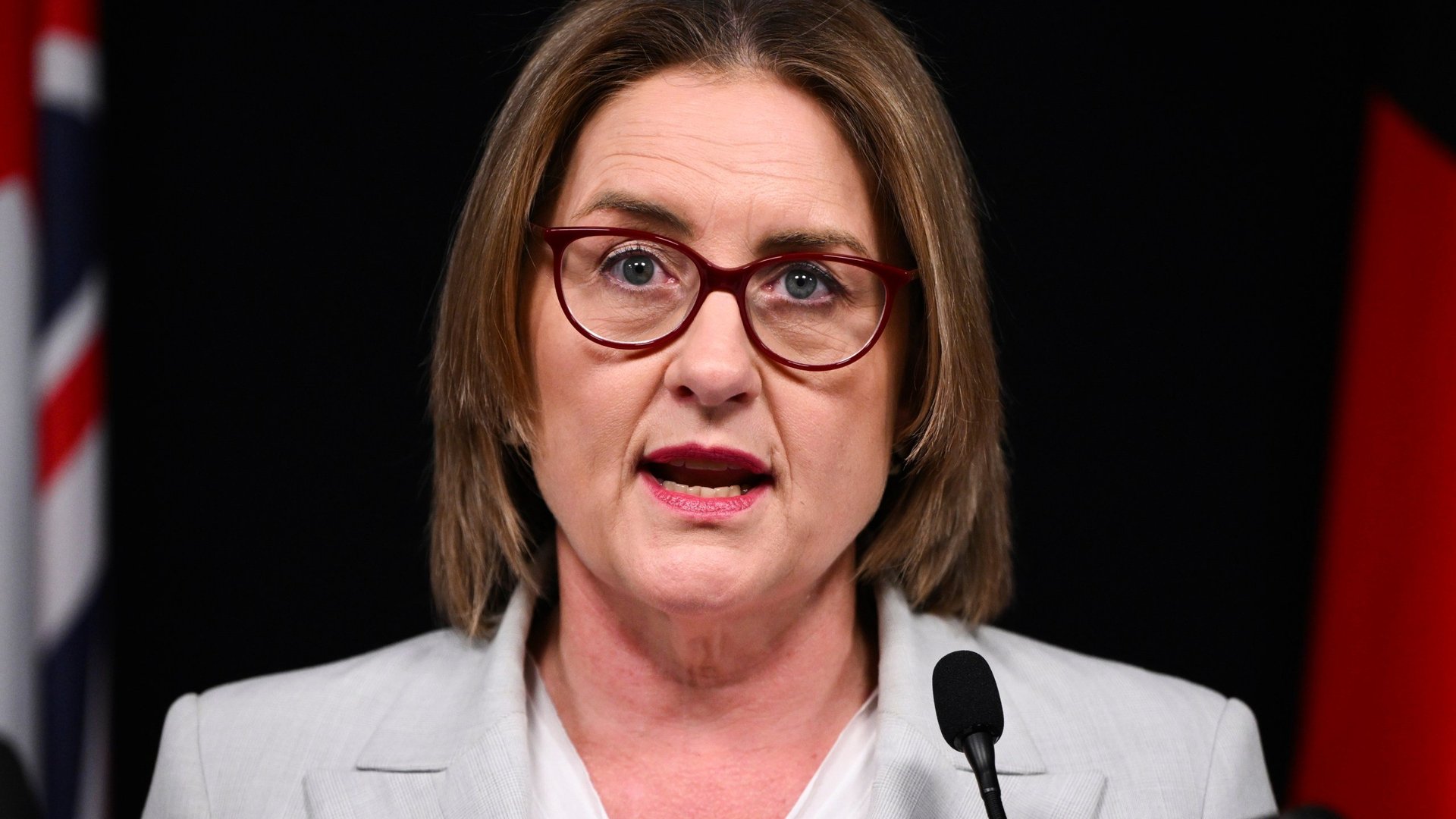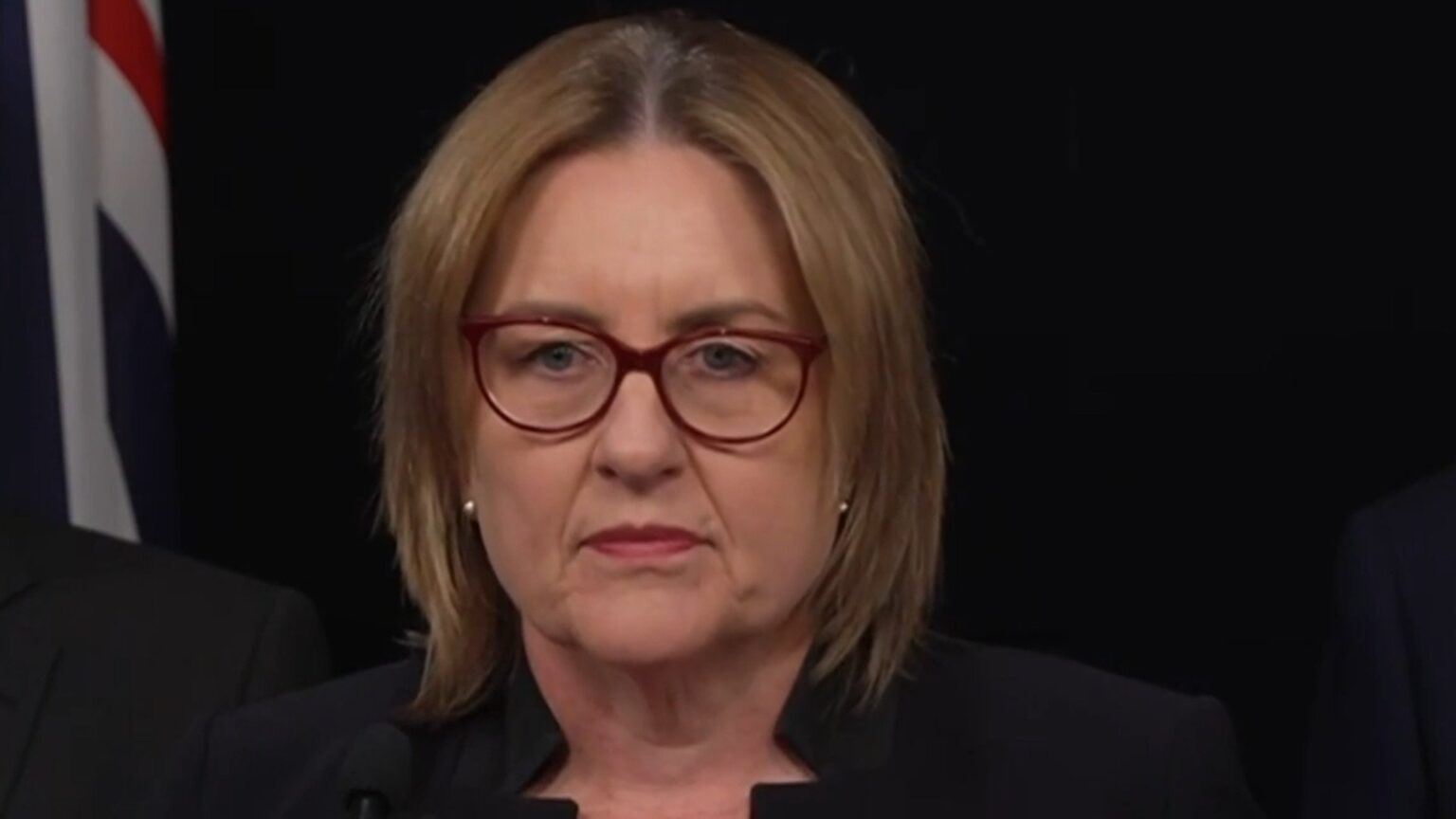MELBOURNE IN CHAOS: Premier Jacinta Allan Sparks Outrage by Declaring City ‘Safe’ Despite Machete Attacks and Violent Protests
- Two teenagers attacked by machete-wielding thugs at Luna Park, St Kilda, with victims suffering minor injuries
- Two police officers injured by ‘projectiles’ during counter-protests to the March For Australia rally in Melbourne’s CBD
- Police used capsicum spray and rubber bullets to quell violent protesters, with one arrest made and multiple others identified through CCTV
VICTORIAN Premier Jacinta Allan has sparked outrage by declaring Melbourne ‘safe’ despite a spate of violent protests and vicious machete attacks that have left the city reeling.
Allan’s comments came just hours after two teenagers were attacked by a group of men armed with machetes at Luna Park in St Kilda, with the victims suffering minor injuries before the offenders fled in a car.
The incident was just the latest in a string of violent incidents to rock Melbourne, including counter-protests to the March For Australia rally in the CBD that turned ugly, leaving two police officers injured by ‘projectiles’ and multiple others identified through CCTV.
In a shocking display of defiance, Allan denied that the city has a problem with violent crime, stating that Melbourne’s CBD is ‘safe’ and that the violence towards police was ‘just disgraceful’.

‘I think it would be wrong and misleading to conflate the behaviour of a very small number of people yesterday – who came to the city to bring violence and they were dealt with swiftly by Victoria police – with the incredible number and growing number of people who come in and out of the city every day and on weekends,’ Allan said.
‘What we saw yesterday is for some, they are choosing to protest for the sake of protesting.’
Her comments have sparked widespread outrage, with many calling for increased action to tackle the growing problem of violence in Melbourne.
Commander Wayne Cheeseman from the North West Metro region vowed that police would take a hardline stance against violent protesters, saying: ‘Police do not attend protests with the aim of using force, but it is always in response to the actions of protesters, whether it be violence between different groups or towards officers.’
The government’s response to the growing problem of violence has been met with criticism, with many pointing to the recent law changes aimed at tackling machete crime as insufficient.
Data from the Crime Statistics Agency reveals that Melbourne’s CBD has seen a dramatic increase in crime rates over the past year, with total criminal incidents jumping by more than 20 per cent to 35,241 in the year leading up to the end of June.
The rate of crimes per 100,000 citizens has risen to 18,097, more than two-and-a-half times greater than the state average.
Despite the alarming statistics, Allan remains defiant, stating that her government has implemented measures to tackle the problem, including stricter bail laws aimed at stemming a ‘pattern of brazen, often repeat, offending’.
‘We absolutely acknowledge there is more work to be done,’ Allan said.
As Melbourne continues to grapple with the fallout from the latest violent incidents, one thing is clear: the city remains on high alert, with many demanding answers and action from the government to restore order and safety to the streets.

